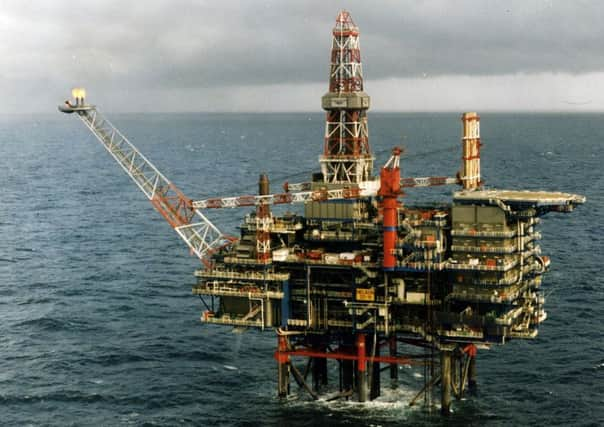North Sea oil and gas '˜must not waste a good crisis'


Colette Cohen, senior vice president of Centrica in UK and Netherlands, said the industry had failed to invest in technology an innovation during the good times - and that as a result was facing an “innovation gap” when it needed new ideas the most.
Some oil companies are already reaching out to other sectors - such as the military - for fresh approaches including thermal imaging cameras to detect pipeline “leaks and seeps” and drones that can carry out rig inspections.
Advertisement
Hide AdAdvertisement
Hide AdBut Ms Cohen said oil and gas had fallen behind in innovation and could be described as “luddites” when compared to other enterprises, including logistics firms such as Amazon.
Ms Cohen, speaking at the Industry Technology Facilitator conference and technology showcase in Aberdeen this week, said oil and gas companies must now “not waste a good crisis” and seize opportunities opening up as the industry moves into a new era.
She said: “There are people doing things way bolder than us. We need to start challenging ourselves to the use and deployment of new technology
“My challenge to you all is not to waste a good crisis.
“We have an opportunity now not only to survive but to thrive, to create a sustainable industry that gets back to its roots, that is innovative and a little bit more brave, that reaches out to our own industry and other industries and find technology that we can deploy.
“We also need to be bold if we are going to help our industry in the North Sea survive - and thrive.”
The conference also heard that oil and gas put an average of 0.5 per cent of revenues into research and development, compared to 11 per cent in aviation and 18 per cent in pharmaceuticals.
Ms Cohen said at the beginning of North Sea oil and gas in the 1960s and 1970s, the only other industry more intensive when it came to use of computers and data management was NASA.
“I would guess now we are luddites compared to most others.
“Even some of the logistics companies like Amazon use robotics and computers more effectively than us.
Advertisement
Hide AdAdvertisement
Hide Ad“On the plus side, because everyone else has been working on it, we get to steal it that is what we should be thinking about.
“There is technology out there already that we could rapidly deploy within our industry, if we were a little bit more open, stopped thinking we were special and unique and started believing we were just another industry and that robotics somewhere else could be applied to us.”
Ms Cohen said the industry had been very slow to deploy new technology such as horizontal well drilling which had taken “20 years to become our bread and butter.”
“There are the kinds of things we will have to change in attitude and culture if we are to make a difference in these times of need,” she added.
Risk aversion had increased exponentially which could partly be linked to the Macondo or Deepwater Horizon explosion in the Gulf of Mexico in 2010, Ms Cohen said.
“During a period of high oil price, it’s a case of ‘just get it on line, don’t mess about. It doesn’t matter if it costs a bit more, don’t take risks.
“Unfortunately that has its own consequences,” she added.
Ms Cohen said companies weren’t going to take “serial number 0001” - a brand new piece of equipment - but rather opt for something “tried and tested”.
The Centrica vice president also said the industry was guilty of a “scattergun” approach to innovation and that its impact was weakened as a result.
Advertisement
Hide AdAdvertisement
Hide Ad“We have got ideas that go everywhere, and that is magic. The problem is that we don’t focus enough to deliver stepchange improvement in one area.
“You really do build on success. If no one is getting that success everything just falls by the wayside.”
She said that a move towards “standardisation” of equipment has benefited the industry in many ways but it also left new innovation struggling to get through the tendering process.
The industry should focus on three areas in this time of “crisis in oil price”.
She said it was essential to commit to lowering operational costs, simplifying and reducing the cost of an estimated £50m of decommissioning work and - crucially - open up around 210 small pools of oil reserves known to exist in the North Sea.
She said this alone could produce between 3m and 15m barrels of oil equivalent (BOE) but that operators needed to collaborate to bring down the cost of the work.
Ms Cohen said: “My belief is if you can unlock small pool, you can unlock exploration. Can you image what the industry would look like if 150 unlocked small wells came online?”
She added that Centrica found the 210th small pool but the company was still “struggling” to develop it - because the technology was not there to do so.